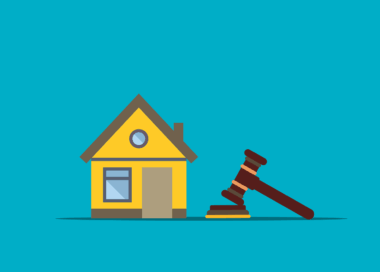Mortgage Rates: What Every First-Time Homebuyer Needs to Know
Mortgage rates play a crucial role in the home buying process, especially for first-time buyers. Understanding the types of mortgage rates available is essential. Generally, mortgage rates can be categorized into fixed and adjustable rates. Fixed rates remain constant throughout the mortgage term, providing stability. On the other hand, adjustable-rate mortgages (ARMs) have variable rates that can change periodically. First-time homebuyers must evaluate their financial situations before choosing a mortgage type. Consider factors such as how long you plan to stay in the home and your risk tolerance. It’s also vital to shop around for lenders, as different institutions may offer varying rates. Checking rates regularly can help you decide the best time to lock in your rate. Comparing the annual percentage rates (APR) can also give insight into the total cost of a mortgage. Besides, don’t forget additional costs such as insurance and property taxes. Educating yourself on mortgage rates will prepare you to make informed decisions.
Interest rates significantly affect the affordability of a mortgage. The Federal Reserve influences interest rates, and when they rise, mortgage rates typically follow. This upward trend can deter potential buyers, making it challenging to purchase a home. Conversely, when interest rates decrease, it creates a favorable environment; home buying tends to surge, leading to increased home prices. Understanding economic indicators can be helpful for first-time homebuyers. It may also be beneficial to keep an eye on inflation rates, employment rates, and consumer sentiment. These factors contribute to market predictions, helping buyers anticipate future mortgage rate trends. Refinance rates are another aspect worth considering. If lower rates become available after you secure your mortgage, refinancing could save you money. Ensure you understand the terms of refinancing, as it may come with costs. It’s wise to consult with financial advisors or mortgage professionals who can guide you through these complexities. By staying informed about interest rate fluctuations and additional market conditions, you’ll be in a better position to make sound financial decisions regarding your mortgage.
The Importance of Credit Scores
Your credit score is pivotal when applying for a mortgage. Lenders assess this number to determine your eligibility and the interest rate you may receive. A higher credit score generally translates to more favorable terms, making it easier for first-time homebuyers to secure mortgages. Scores usually range from 300 to 850; higher scores indicate better creditworthiness. It’s essential to know your credit score before beginning your home-buying journey. If it’s low, take the time to improve it before applying for a mortgage. Simple steps like paying down debts promptly, resolving disputes, and maintaining low credit utilization can boost your score. Monitoring your credit reports regularly is also wise; errors can negatively impact your score. Be proactive in correcting any inaccuracies. Mortgage lenders often use a tiered system for rates—those with excellent credit receive lower rates and better options. As a first-time buyer, working on your credit score will provide you with improved access to more favorable mortgage products. The relationship between credit scores and mortgage rates cannot be overstated, as it plays a strategic role in home purchasing.
Another consideration impacting mortgage rates is the loan amount. Smaller loans typically come with higher interest rates due to perceived risk. First-time homebuyers should think seriously about how much they require and avoid borrowing more than necessary. Larger loans, on the other hand, tend to have lower rates, benefitting those looking at homes in higher price ranges. The length of the loan term also contributes to how interest rates are structured. Commonly, homeowners can choose loan terms like 15, 20, or 30 years. Shorter terms usually have lower rates but come with higher monthly payments. Consider your financial ability to pay these. Alternatively, longer terms often mean lower monthly payments but can lead to paying more interest over time. Balancing the loan amount and term can directly affect your monthly budget. Ensuring you have realistic expectations about what you can afford will aid you in making sound decisions in relation to mortgage rates. Ultimately, the aim should be to secure a mortgage that aligns with your long-term financial goals.
Understanding Total Costs
When planning to buy a home, it’s important to understand the total costs associated with obtaining a mortgage. First-time buyers often focus on the principal and interest payments, yet there are several additional expenses to consider. Property taxes, homeowners insurance, and private mortgage insurance (PMI) can all increase your monthly mortgage payment. These expenses can vary significantly based on your location and the home’s value. Home inspections and appraisals are necessary for lenders to confirm the home’s worth and ensure it’s in good condition. Closing costs, typically ranging between 2% to 5% of the home’s purchase price, can also catch first-time buyers off guard. These costs may include loan origination fees, title insurance, and attorney fees. It’s crucial to budget for these additional expenses alongside your down payment. Many first-time homebuyers may qualify for programs designed to assist in covering down payments and closing costs. Research local resources and lending programs that may offer assistance. A clear understanding of the total costs will help in managing expectations and preparing more effectively.
Certain governmental and institutional programs exist to support first-time homebuyers. Federal Housing Administration (FHA) loans are one popular option offering lower down payments and flexible credit score guidelines. For those with limited funds, the FHA requires as little as 3.5% as a down payment. Additionally, USDA and VA loans cater to specific groups like veterans and rural homebuyers, often requiring no down payment. These loans can be extremely beneficial for first-time buyers who meet the qualifications. State and local programs may also provide help with down payments and closing costs through grants or loans. First-time homebuyers should research available programs and determine eligibility criteria. Engaging with a knowledgeable real estate agent can facilitate finding the best mortgage option that suits your needs. Their insights into local markets and financing options can help navigate the complexities of mortgage applications. The key to making the most of these resources is to begin your search early and remain persistent in exploring all available avenues. Taking advantage of these opportunities can make homeownership highly attainable.
Preparing for Mortgage Application
Preparing for your mortgage application is essential to ensure a smooth process. Gather the necessary documentation in advance, including proof of income, employment verification, and tax returns. Lenders often require a comprehensive view of your financial situation. Be prepared to provide bank statements reflecting your assets over the last few months. Knowing how to present this information clearly can help speed up the process. Furthermore, avoid making significant financial changes before applying, as this could disrupt your approval. It’s wise not to take on new debt, such as buying a car or making large purchases on credit. Maintaining stability during this period will demonstrate to lenders that you are a responsible borrower. Work with your lender to discuss your budget before applying; they can help you find a suitable mortgage based on your qualifications. Having a realistic price range in mind will benefit both you and the lender. A strong application supported by accurate information improves your chances of securing the best mortgage. Being well-prepared for the mortgage application will save time and reduce potential challenges in acquiring your new home.
In conclusion, becoming a first-time homebuyer comes with many responsibilities. Understanding mortgage rates and their influences will empower you to make informed decisions. Reality often dictates that the more educated you are about your options, the better you’ll navigate the mortgage landscape. Commit to researching and learning about the various mortgage types, interest rates, points, and total costs will enhance your buying experience. A key aspect is improving your credit score, which can lead to lower rates and terms more suited to your financial needs. Furthermore, taking advantage of available first-time homebuyer programs tailored to your situation can yield substantial financial benefits. Always prepare adequate documentation before applying, and remain vigilant about your overall financial health during the mortgage process. Networking with professionals, including real estate agents and financial advisors, can provide you with valuable insights and guidance. As a result, equipping yourself with knowledge and resources will ultimately make you a more confident buyer. Ultimately, with proper preparation and research, you can secure a mortgage that aligns with your long-term homeownership goals.








